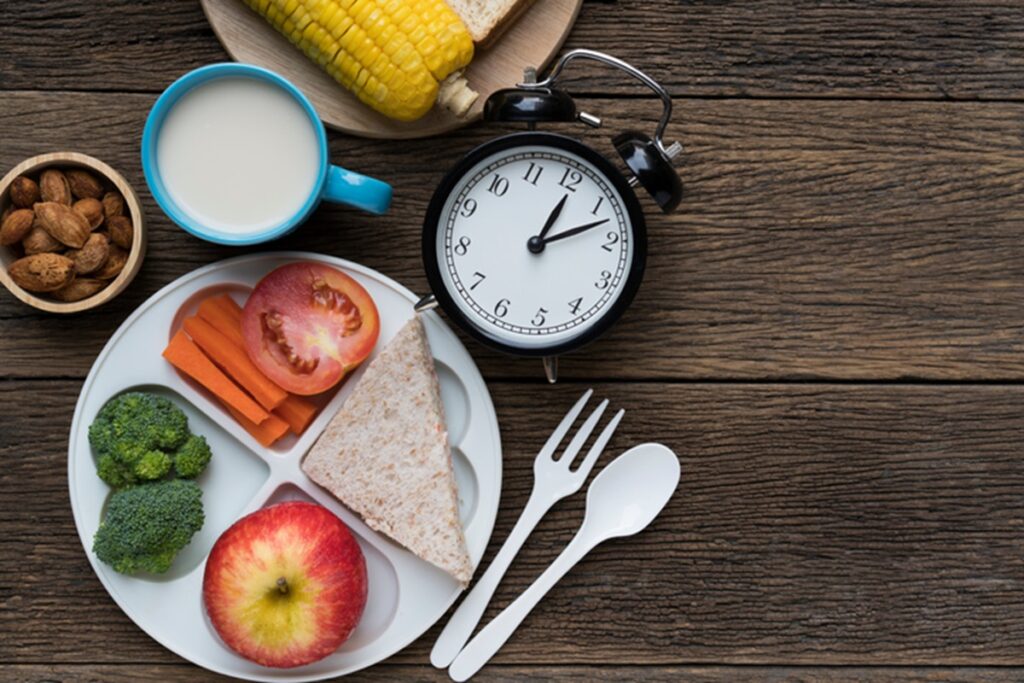Meal Timing: Should You Eat Before or After a Workout? – Balancing nutrition and exercise can be challenging, especially when it comes to meal timing. Many people ask, “Should I eat before or after the gym?” The answer isn’t straightforward, as it depends on various factors such as your goals, the type of exercise, and personal preferences. This guide will help you navigate the decision and optimize your workout results with proper meal timing.
Understanding Workout Nutrition – The question of whether to eat before or after a workout depends largely on your individual needs and circumstances. Factors such as your fitness goals, the nature of your workout, your lifestyle, and your overall diet all play a role in determining the best approach.
Generally, eating something around your workout time—whether before, after, or both—can be beneficial. Proper nutrition supports recovery, muscle growth, and overall performance. However, there’s no one-size-fits-all answer, so it’s important to consider your unique situation.
Pre-Workout Fuel: Key Considerations:
When choosing pre-workout fuel, focus on consuming a balanced mix of carbohydrates and proteins to provide sustained energy and support muscle recovery. It’s essential to eat your pre-workout meal 30 minutes to an hour before exercising to avoid discomfort and maximize performance.
1. Digestion Timing: Eating before a workout can be advantageous, but it’s crucial to allow time for digestion to avoid discomfort. If you eat too close to your workout, you might experience gastrointestinal issues like cramping or bloating. To prevent this, aim to eat a meal or snack about 30-60 minutes before exercising. This timeframe allows your body to start processing the food, although it may not be fully digested.
For those who exercise early in the morning, finding the right balance can be tricky. If you’re hitting the gym shortly after waking up, a light snack or even just a small amount of water might be sufficient. If you have more time, a more substantial pre-workout meal can be beneficial.
2. Type of Exercise: The intensity and type of exercise you’re doing can influence whether you should eat before or after. For high-intensity workouts or strength training, having a balanced pre-workout meal can provide the energy needed for optimal performance. Foods rich in carbohydrates and protein, such as a banana with peanut butter or Greek yogurt with berries, can help fuel your workout.
For lighter activities like walking or stretching, a pre-workout meal might not be necessary. You might find that exercising on an empty stomach is more comfortable and doesn’t affect your performance.
3. Personal Goals: Your fitness goals also play a significant role in meal timing. If your primary aim is to build muscle, eating a protein-rich meal or snack before your workout can help provide the necessary building blocks for muscle repair and growth. Conversely, if you’re focusing on weight loss, you might opt for a smaller pre-workout snack or even skip it altogether, depending on how your body responds.
4. Individual Preferences: Everyone’s body reacts differently to food intake before a workout. Some people feel energized and perform better with a small snack, while others may prefer to exercise on an empty stomach. It’s important to listen to your body and find what works best for you. Experiment with different foods and timing to determine your ideal pre-workout routine.
Maximize your workout results with the right nutrition! Contact our team today for personalised guidance and tips to fuel your fitness journey!
Post-Workout Nutrition: The Importance of Recovery:
Eating after a workout is crucial for recovery, muscle repair, and overall performance. After exercise, your muscles need nutrients to replenish energy stores and repair any damage. A combination of protein and carbohydrates is typically recommended for post-workout nutrition.
1. Timing: Ideally, you should aim to eat a meal or snack within 30-60 minutes after your workout. This window of time is often referred to as the “anabolic window,” during which your body is most efficient at absorbing nutrients and starting the recovery process. However, if you can’t eat right away, don’t stress too much. Try to eat something balanced within a few hours of finishing your workout.
2. Nutrient Composition: A post-workout meal or snack should include both protein and carbohydrates. Protein helps repair and build muscle tissue, while carbohydrates replenish glycogen stores that were depleted during exercise. Some good examples include a protein shake with a piece of fruit, a chicken and vegetable stir-fry, or a smoothie made with yogurt, berries, and oats.
3. Hydration: In addition to solid food, rehydrating after exercise is essential. During workouts, you lose fluids through sweat, and replenishing these lost fluids is crucial for overall recovery and performance. Drink plenty of water or an electrolyte-rich beverage to help restore your hydration levels.
4. Special Considerations: Certain types of workouts may have specific nutritional needs. For example, endurance athletes might require more carbohydrates to replenish glycogen stores, while strength athletes may need a higher protein intake to support muscle repair. Tailor your post-workout nutrition to fit the demands of your exercise routine and personal goals.
Balancing Pre- and Post-Workout Nutrition:
Finding the right balance between pre- and post-workout nutrition involves understanding your body’s needs and how it responds to different foods and timings. Here are a few tips to help you balance your nutrition effectively:
- Plan Ahead: Schedule your meals and snacks around your workouts to ensure you’re properly fueled and recovered. This might involve preparing meals in advance or setting reminders to eat before and after exercise.
- Listen to Your Body: Pay attention to how your body feels before and after workouts. If you notice discomfort or poor performance, adjust your meal timing and content accordingly.
- Experiment: Try different foods and timings to see what works best for you. Everyone’s body is different, so it might take some trial and error to find your ideal routine.
- Consult Professionals: For personalized advice, consider working with a nutritional counselor or fitness coach. They can help you develop a meal plan tailored to your specific goals and needs.
Deciding whether to eat before or after a workout depends on various factors, including the type of exercise, personal goals, and individual preferences. While there is no universal answer, eating around your workout time—whether before, after, or both—can help support performance, recovery, and muscle growth.
Remember to listen to your body, experiment with different approaches, and consult with professionals if needed. By finding the right balance, you can optimize your nutrition and enhance your fitness results.
If you have any questions or need further assistance, feel free to contact our team. We’re here to support your fitness journey!





